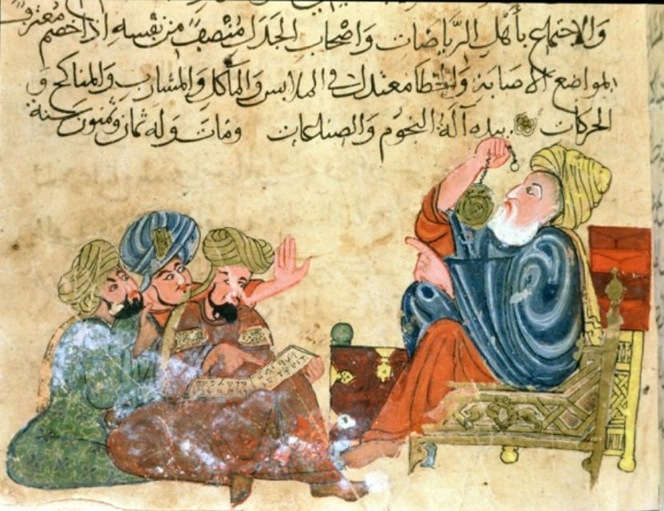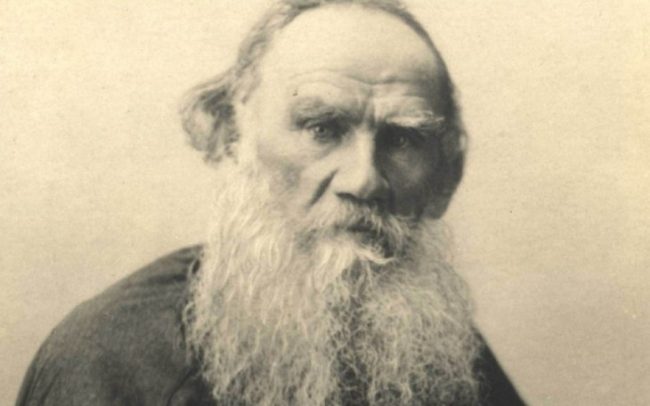Though it isn’t widely acknowledged, there’s been a longstanding and robust debate at least since the nineteenth century over whether or not a historical Jesus existed. The majority of Christians dismiss the evidence, or lack thereof, for reasons of belief, but on a wider view it’s not at all unique that the historical founder of a religion or school might be an invention, or might have been nothing at all like the tradition suggests. Such questions have arisen about the reality of the Buddha, for example, or the authorship of Lao Tzu, writer of the Tao Te Ching, or the historical existence of his supposed contemporary Confucius, founder of the system of philosophy and ethics simply known as Confucianism.
What do we know about Confucius? “Very little for certain,” says Alain de Botton in his School of Life introductory video above. “He’s said to have been born in 551 BC in China,” and he may have been a student of Lao Tzu. Confucius supposedly served as minister of crime under the ruler of the state of Lu. Many mundane stories about the Chinese thinker make his existence seem quite plausible, though his legend picked up miraculous features over time. But the sayings supposedly by and about Confucius, historical or otherwise—like those of Jesus and the Buddha—were only written down many years after his death, collected in the famous Analects (Lunyu, or “edited conversations”).
These sayings became enormously popular during the European Enlightenment and the 20th century, writes Charlotte Allen at The Atlantic, in part because Confucius remained “agnostic on whether a supernatural world actually exists.” Though he encouraged participation in religious rituals, “The Master,” one of the analects remarks, “never talked of: miracles; violence; disorders; spirits.” What he did talk about what was “the Golden Mean: all things in moderation, even moderation itself.” Confucius was a conservative thinker—in the sense that word once had of holding fast to tradition, encouraging adherence to “ritual propriety” and family observances, and respecting the rule of law.
His sayings include a version of the Golden Rule, and he “is said to have taught his disciples the cultivation of personal virtue.… veneration of one’s parents, love of learning, loyalty to one’s superiors, kindness to one’s subordinates, and a high regard for all of the customs, institutions, and rituals that make for civility.” One can see his appeal to many liberal Western philosophers, who have often advanced radical theses alongside the conservative values Max Weber characterized as the Protestant ethic. Thomas Paine, writes Allen, “listed Confucius with Jesus and the Greek philosophers as the world’s great moral teachers” in the Age of Reason, and Ezra Pound had a particularly high regard for the Chinese thinker.
This kind of veneration has meant that “to many educated Westerners, Confucius is the very emblem of Chinese civilization and religious belief.” Or as the TED-Ed video above puts it, “most people recognize his name and know that he is famous for having said… something.” In this video introduction to Confucius, the philosopher’s biography plays a very prominent role, and it does make for an engaging story. But we should be aware that the details of his life are highly contested by scholars in the East and West. The only sources date from “well after his death,” notes the Stanford Encyclopedia of Philosophy, and “taken together paint contradictory pictures of his personality and the events in his life.” Some scholars even claim he was an invention of the Jesuits, who may have created the Confucius character to accord with their Western desire for a personal founder.
But we need not believe biographical details or decide between scholarly controversies to appreciate Confucian thought. As de Botton makes clear, Confucius’ respect for tradition—though certainly patriarchal and hierarchical—also gives us a lot of insight into how and why we should heed people with expertise and superior knowledge, why we should value education and difficult study, and why personal integrity matters in civic life. Though we cannot verify his life story, we can see it as a popular narrative allegory for his ideas. Confucius exhorted his disciples to obey their leaders, yet he also insisted that those leaders be benevolent and honorable.
It is said that Confucius left Lu, where he had served faithfully as a minister, when the Duke received a gift of courtesans and horses from a neighboring ruler, and began to spend all his time cavorting, and misusing the state’s resources. Thus, according to the tradition, began a period of wandering as the philosopher pondered the cultivation of character. You can read the Analects for yourself in a number of translations—including this free online version from Robert Eno. And if you wish to immerse yourself more fully in the study of Confucianism and Chinese philosophy and culture more generally, you can do so for free through Harvard’s edX course on China or, through Coursera’s “Classics of Chinese Humanities: Guided Readings,” taught by Ou Fan Leo Lee, Professor of Chinese Culture at The Chinese University of Hong Kong.
Related Content:
Free Online Philosophy Courses
Eastern Philosophy Explained with Three Animated Videos by Alain de Botton’s School of Life
Josh Jones is a writer and musician based in Durham, NC. Follow him at @jdmagness



